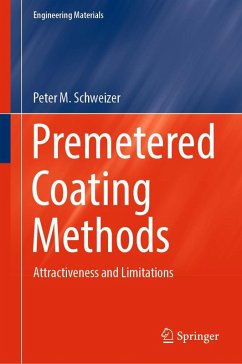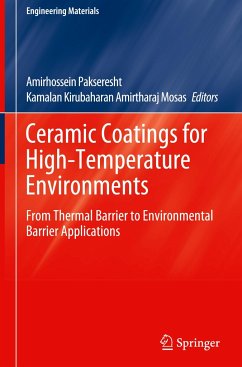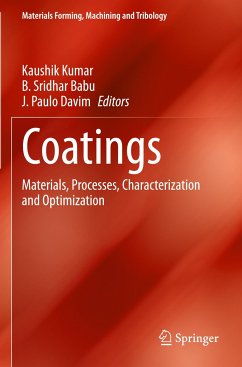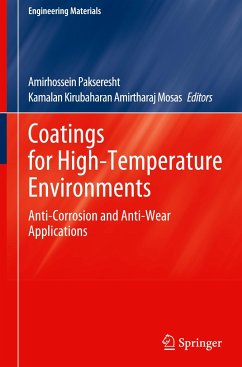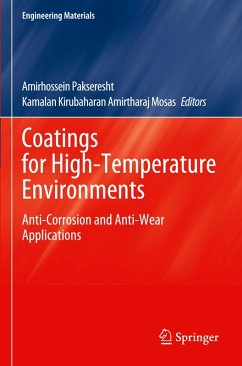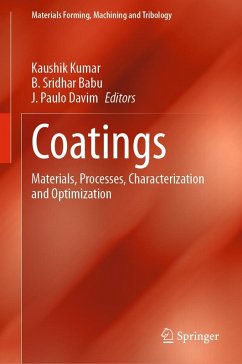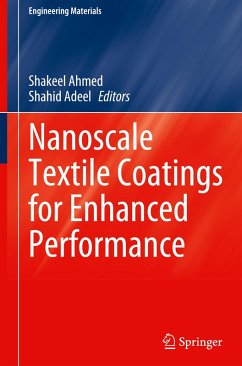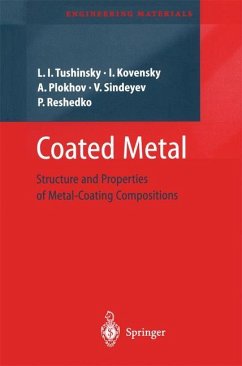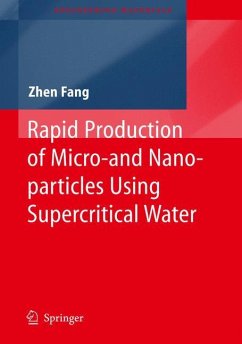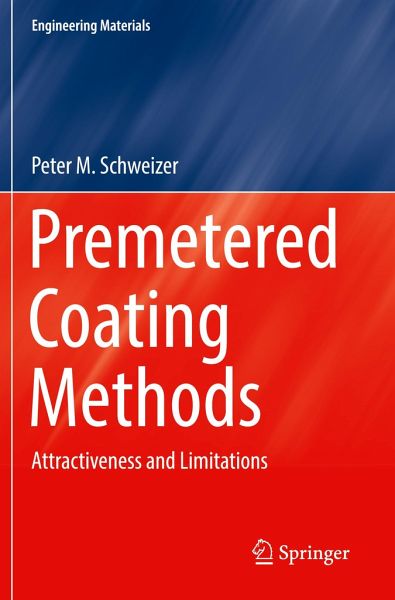
Premetered Coating Methods
Attractiveness and Limitations
Versandkostenfrei!
Versandfertig in 6-10 Tagen
61,99 €
inkl. MwSt.
Weitere Ausgaben:

PAYBACK Punkte
31 °P sammeln!
This book compares premetered methods to self-metered processes and addresses general properties of premetered methods. It presents specific properties of slot, slide, and curtain coating. The book is divided in three parts:Part I compares premetered methods to self-metered processes. It explains the term "premetered," which is an expression of the law of mass conservation, and discusses the physical fluid properties that are relevant for premetered processes. Furthermore, it presents in detail the various basic flow fields that make up premetered coating methods. Lastly, it introduces the con...
This book compares premetered methods to self-metered processes and addresses general properties of premetered methods. It presents specific properties of slot, slide, and curtain coating. The book is divided in three parts:
Part I compares premetered methods to self-metered processes. It explains the term "premetered," which is an expression of the law of mass conservation, and discusses the physical fluid properties that are relevant for premetered processes. Furthermore, it presents in detail the various basic flow fields that make up premetered coating methods. Lastly, it introduces the concepts of wall shear stress, residence time, and hydrodynamic assist to dynamic wetting.
Part II addresses general properties of premetered methods, such as the fluid conditioning and delivery systems, the nominal film thickness, and the film thickness uniformity, both in machine and cross-web directions (die design). It lists the attractive features of simultaneous multilayer applications, including an explanation of how mixing of adjacent layers can be prevented. This section concludes by revisiting examples of economic considerations.
Part III presents specific properties of slot, slide, and curtain coating. It examines various topics, such as coating equipment and coating configurations, coating modes, details of the various flow fields, operating window and process limitations, and process optimization.
Part I compares premetered methods to self-metered processes. It explains the term "premetered," which is an expression of the law of mass conservation, and discusses the physical fluid properties that are relevant for premetered processes. Furthermore, it presents in detail the various basic flow fields that make up premetered coating methods. Lastly, it introduces the concepts of wall shear stress, residence time, and hydrodynamic assist to dynamic wetting.
Part II addresses general properties of premetered methods, such as the fluid conditioning and delivery systems, the nominal film thickness, and the film thickness uniformity, both in machine and cross-web directions (die design). It lists the attractive features of simultaneous multilayer applications, including an explanation of how mixing of adjacent layers can be prevented. This section concludes by revisiting examples of economic considerations.
Part III presents specific properties of slot, slide, and curtain coating. It examines various topics, such as coating equipment and coating configurations, coating modes, details of the various flow fields, operating window and process limitations, and process optimization.





